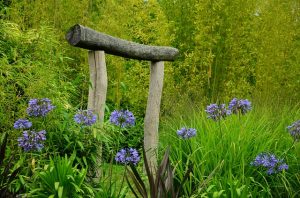A great garden is one in which there is a person working in the background. They follow gardening rules very religiously. They only sow seeds at the perfect time. They also ensure that the seeds are spaced out just right.
Don’t Sow Your Seeds or Set out Seedlings Too Early!
Be strong: resist the temptation to sow your garden on the first warm spring weekend! Heat- loving summer annuals will not thrive and grow well until the soil has warmed up and spring weather conditions are warm and settled with outdoor night temperatures consistently in the 50 (10 C) range. This includes summer flower favorites like zinnias, sunflowers, morning glories and cosmos, heat loving herbs like all basils, oregano and thyme, and all the many fruiting summer vegetables such as pole and bush beans, summer and winter squash, cucumbers, corn, melons and watermelons, peppers, pumpkins and tomatoes. Read our seed packet backs to find out when to sow seeds if you are not sure.
Do Thin to the Proper Spacing
Our seed packet backs give both the initial distance apart for sowing seeds and also tell you the final spacing to grow them after they have germinated into seedlings. Specifically, thinning to the final spacing means that you take out extra seedlings that have germinated too close together, leaving only those that are at the proper distance apart so they have enough space to thrive and grow to maturity. Do not neglect to thin your seedlings out to the suggested final spacing. Give away or compost the extra seedlings you take out. Over and over, Ive seen proof of the incontrovertible fact that unhappy crowded plants just won’t grow or produce well and are more disease prone.
Sourced from: http://www.reneesgarden.com/articles/do-don’t.htm
If you are about to plant something bushy then you better let your neighbors know in case it crawls into their yard. If your trees are dropping autumn leaves simply go over and clear them away. The aim of the story is to be a good neighbor for your garden’s sake.
DO Be a good neighbor. This is Thomas Broom’s simplest rule. Before you plop a thorny rosebush near where your neighbor’s kids play, have a chat with them about your plans. “Don’t be a bull in a china shop,” says Broom, “and just plant something without permission.”
DO Clean up after yourself. If your tree is dropping leaves or (rotting) fruit into a neighbors’ yard, clean it up for them. “It builds a sense of community,” says Broom (who practices what he preaches). Also, while everyone is very happy you’ve got a pile of compost, keep it out of sight of neighbors as much as possible. “It can be unsightly and stink,” says Broom.
DO Think aesthetically. “Cooler colors — like green, light blue, white and yellow — look nicer,” says Broom. Hot, vibrant colors are not as chic. Ditch the symmetrical look — too generic. “I was in California, and every single garden looked exactly the same,” says Broom. “It should look like it just happened, rather than having been just plopped there.”
Sourced from: http://modernfarmer.com/2014/03/dos-donts-planting-etiquette/
Thou shall not fertilize any landscape plants or trees when summer is about to end. This is because this is not a time to encourage new growth. You should also not use herbicides the weeks before and after you have planted grass.
Don’t fertilize trees, shrubs or other landscape plants during the late summer, especially if you live in an area where freezes occur suddenly and as early as September or maybe even before. The reason is simple: When you fertilize landscape plants, you encourage new growth and that new growth is extremely susceptible to freeze damage, which may not be apparent until the following spring. Besides, plants have been busy growing for several months, and by late summer they’re ready for a rest and to prepare themselves for dormancy.
Don’t use a pre-emergent herbicide two weeks before or after sowing grass seed. “A pre-emergent herbicide works by preventing seeds from sprouting, so it will prevent the grass seeds from sprouting, too.” If you have a lot of weeds in your lawn, use a post-emergent herbicide to zap the weeds without hurting your grass.
Sourced from: http://www.hgtv.com/outdoors/gardens/planting-and-maintenance/remember-these-gardening-donts
